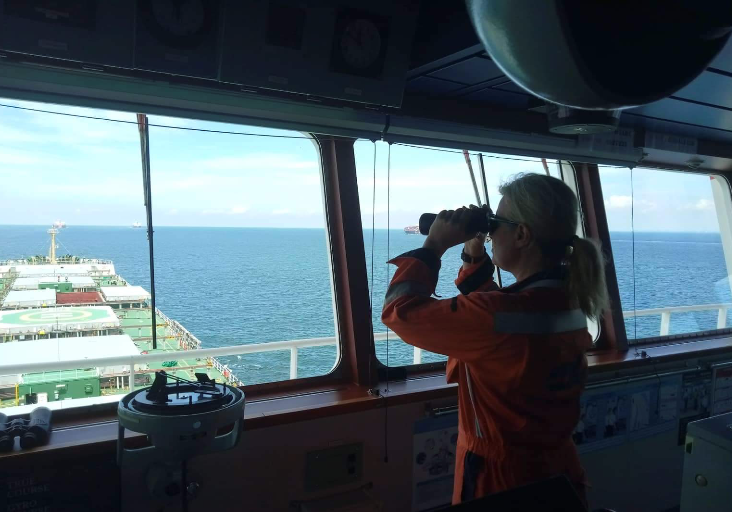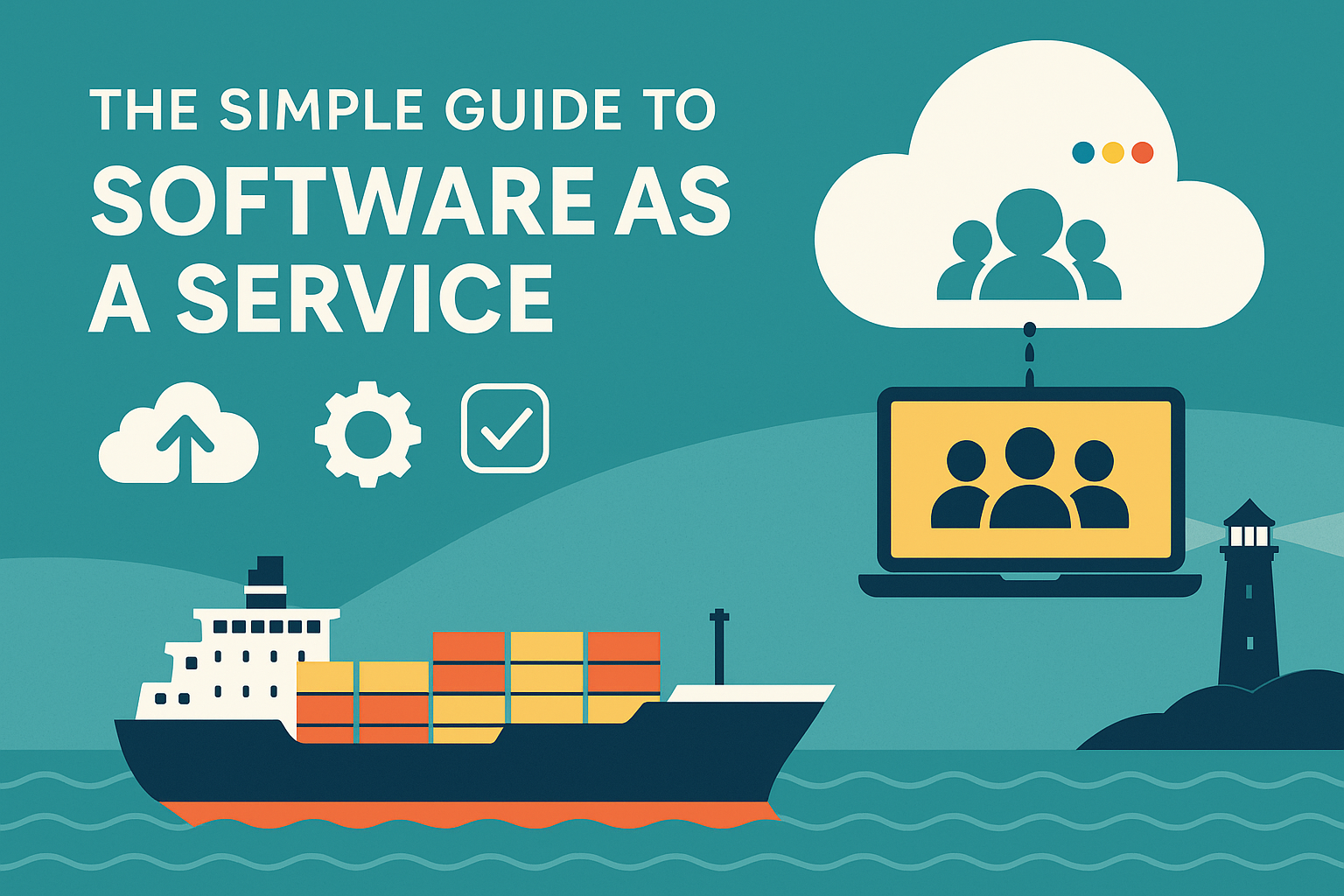What is a Data Gap & How Can a Crewing System Close It?

At Martide it’s no secret that we love technology - after all our maritime crew management software, which includes tools for recruitment, collaboration, and crew planning has helped multiple shipping companies and manning agents simplify their hiring processes and crew changes.
And we’re committed to using that passion, and our knowledge, to help power the maritime industry forward.
We’re strong believers that technology should make life easier for those who use it, eliminating repetitive and mundane tasks and allowing you to focus on what you’re really good at and what you love to do. The kind of things you started your business or joined your company for.
And if you have the sneaking suspicion that there are areas of your business that could be improved upon - for example your maritime recruitment processes or your crew management methods - then it could be down to a data gap.
But what is a data gap? At its very simplest, a data gap is exactly what it sounds like: it is a gap in your organization’s data. Something is not connecting in the way it should connect, leaving your business unable to fulfill its full potential.
How to close your data gap with crew management software
But before you start panicking, you need to determine if you actually have a data gap in the first place.
It could be that everything is running at peak performance and all your crewing systems, seafarer profiles, maritime recruitment efforts, crew management tactics, and software tools are working as one cohesive whole.
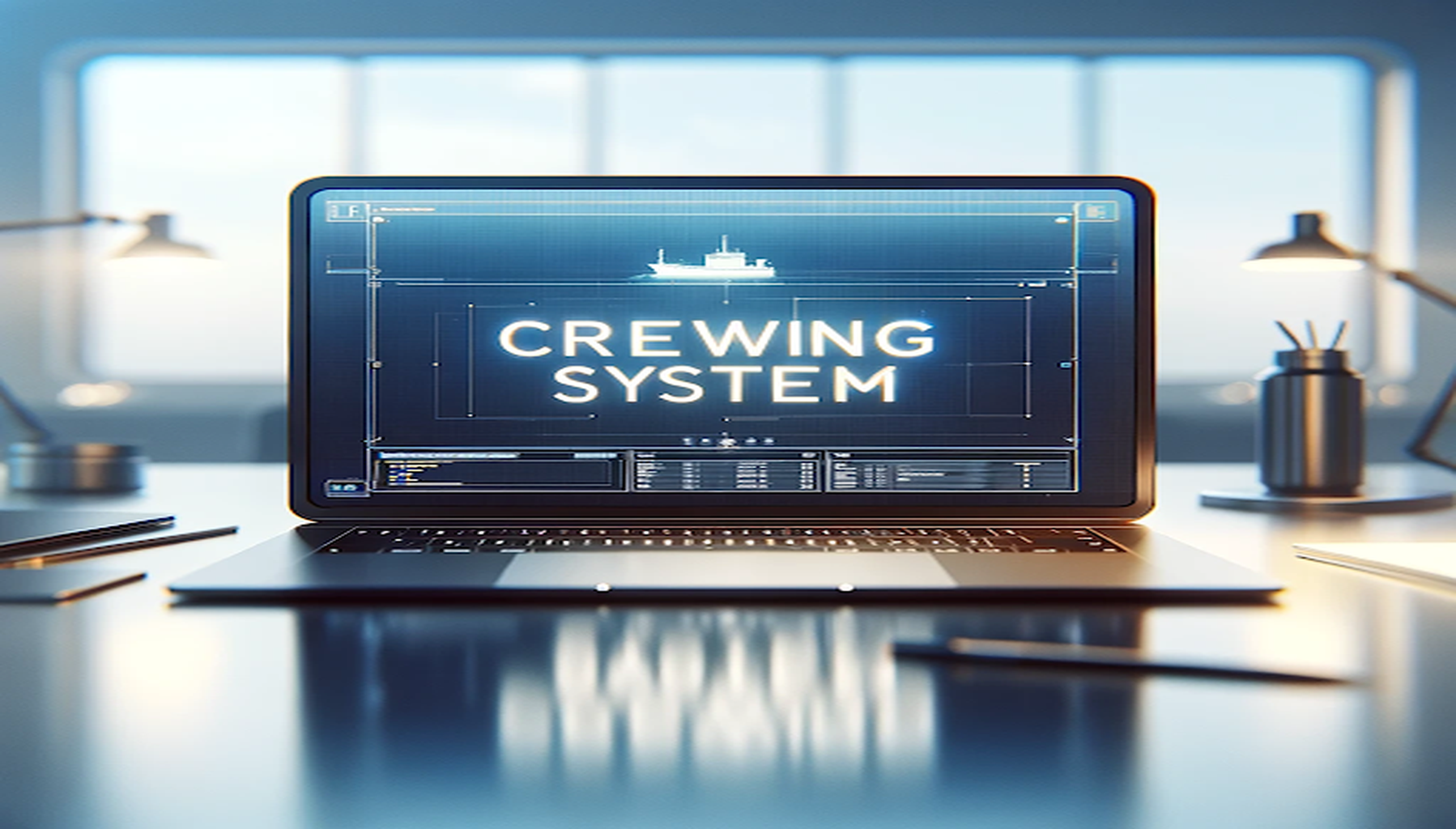
Read more:How to Ensure Your Employees Adopt Your Crewing System
If that’s the case - that’s absolutely fantastic! But if there are areas you know you could improve upon, then it could be well worth your time to run a data gap analysis.
What is data gap analysis?
Gap analysis is something that compares the expected outcome of something with the actual results.
For example, maybe you expected to be able to add a certain number of job-seeking seafarers to your crew database in a yearly quarter but came up short. That would indicate that there is a gap in your maritime recruitment strategy.
And that gap needs closing.
Once you’ve compared your target outcome with the actual results, you can then explore ways to close the gap between them so that you are in a better position to meet your goals.
You can use data gap analysis to examine your company as a whole, different departments and teams, and even individual employees.
How to perform data gap analysis
Performing gap analysis doesn’t have to be...well, a performance.
It doesn’t have to result in major upheaval and you could find the answer to your under performing areas or teams is something as simple as tweaking a few processes, working more closely with a certain employee, or implementing a new software solution, such as a crewing system.
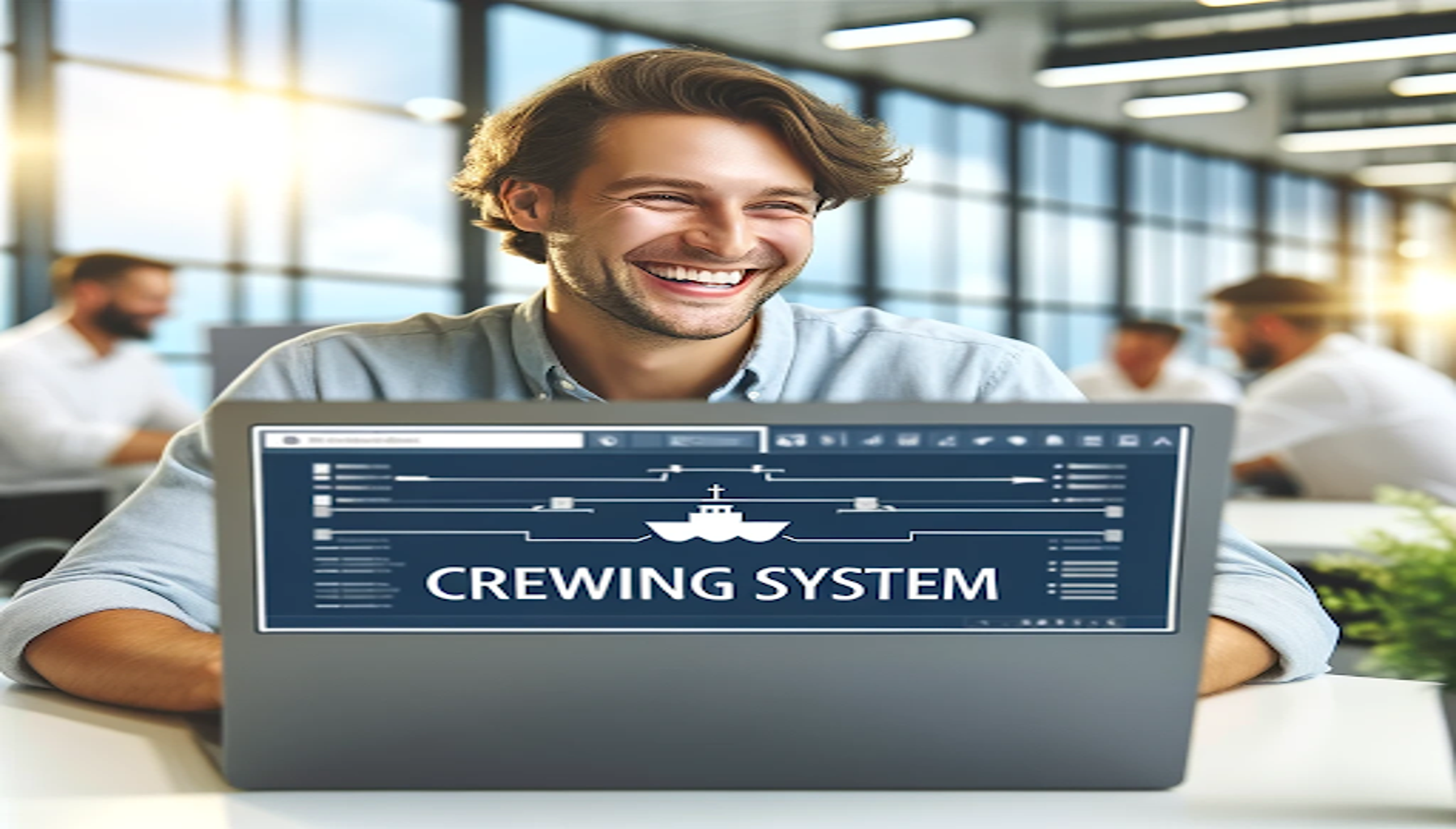
The steps below will help put you on the right path to running a tighter ship. (Pun intended!)
- Identify the team, area or process that you wish to analyze
- Identify the results or outcome you wish to achieve
- Analyze the present results or outcome
- Compare the present outcome with the ideal outcome
- Look at the gap and assess the difference
- Consider how to solve the problem to close the gap
- Implement the solution to the problem and monitor results
How technology can help you close the data gap
It is quite possible that any gaps you identify lie somewhere between two of the most valuable assets of any business – people and information.
At Martide we’ve embraced the new wave of technology-driven change that impacts these assets in order to help them work more cohesively.
For example, a software solution such as a maritime crew management system will enable you to extract the maximum value from your data, manage your crew more effectively and thus allow you to keep pace with and, ideally, outperform your competition.
It’s well known and often said that people are the backbone of any organization. Without them you’d be lost. But the problem in the maritime industry is that you’re not just managing the employees who are working in your shore based maritime jobs
You’re also managing your various crews. And your seafarers and contractors are often isolated. So how do you bring these valuable assets closer together to gain the maximum advantage from them?

In the maritime industry technologies such as crew management and maritime recruitment platforms can have a huge impact in terms of empowering seafarers and connecting them with the rest of the organization.
For example, Martide’s mobile app for seafarers not only helps them find jobs and you fill your vacancies more quickly and easily, it also bridges the disconnect by making it simpler for you and your candidates and hires to stay in touch.
Maritime recruitment and crewing software can also help you find the best people for your crew and allow you to manage them far more efficiently and cost-effectively. No matter where in the world you both are.
Technology is also a force for change: it can be harnessed to help you work more efficiently by eliminating reams of paperwork, predicting ETAs, ensuring there are no breaches in safety and security, and improving and modernizing training for seafarers.
Facing up to your maritime recruitment challenges
Stop for a moment and think about what the biggest challenges that your organization needs to overcome are in order to close your data gap or gaps.
For example, is your data scattered across a confusing mass of tools and programs and even filing cabinets? Is it hard to keep track of who has access to what information? Is the information flow in your business less of a flow and more of a stagnant puddle?
Email, integrated management systems (IMS), and customer relationship management (CRM) systems changed how we communicate, collaborate, and share information some time ago.

And now Artificial Intelligence, RFID and disruptive tech such as drones and blockchain are bringing workplaces and industries right into the 21st century.
And talking of the technologies that are powering the shipping and logistics industries, we’d be remiss if we didn’t discuss big data.
When we talk about data gaps and data gap analysis, it becomes evident that addressing data deficiencies is not merely about identifying missing information but also about leveraging the vast potential of big data to bridge these gaps.
In the maritime industry, where operational efficiency, predictive analytics, and regulatory compliance are increasingly data-driven, the ability to collect, process, and analyze large volumes of information is crucial.
By integrating big data solutions, organizations can move beyond traditional data collection methods, transforming fragmented and incomplete datasets into actionable intelligence that enhances decision-making, optimizes supply chains, and drives innovation across the sector.
What exactly is big data?
Much has been written about big data and we don’t want to get too technical - that’s best left to the techie websites! But at its simplest, unsurprisingly, this is a term that’s used to describe a huge amount of data. This data can be structured or unstructured.
Structured data is, as the name suggests, data that has been organized - usually in a database - so it can be processed and analyzed.
Unstructured data on the other hand is exactly the opposite: information that hasn’t been processed or sorted.

What both structured and unstructured big data sets have in common is that their size, complexity, and often their speed makes them unwieldy to deal with.
Traditional methods of processing data don’t work and so big data is a means of finding ways to handle, process, and analyze these vast amounts of intelligence.
It’s what you do with that data that counts
It’s all well and good having all this data but, as the saying goes, size isn’t everything. It’s what you do with that data once it’s been processed and made more manageable that really counts.
The whole point of big data, and where it can come in extremely useful for the maritime industry and for changing the future of the shipping companies that utilize it, is that it can be analyzed for deep insights that result in more informed decision making and strategic planning.
Traditional data versus non-traditional data
In a pre-big data world companies relied on “traditional technology” to analyze the information collected from within their organization.
Extracted from sources such as warehouses and including factors like transit time, fuel costs, revenue and wages, this data could be interpreted to calculate a voyage’s profit or loss margins.
Marine tech and big data techniques now make it possible to evaluate not just this traditionally-mined data, but also non-traditional data such as texts, videos, images, audio clips, and GPS and sensor readings.
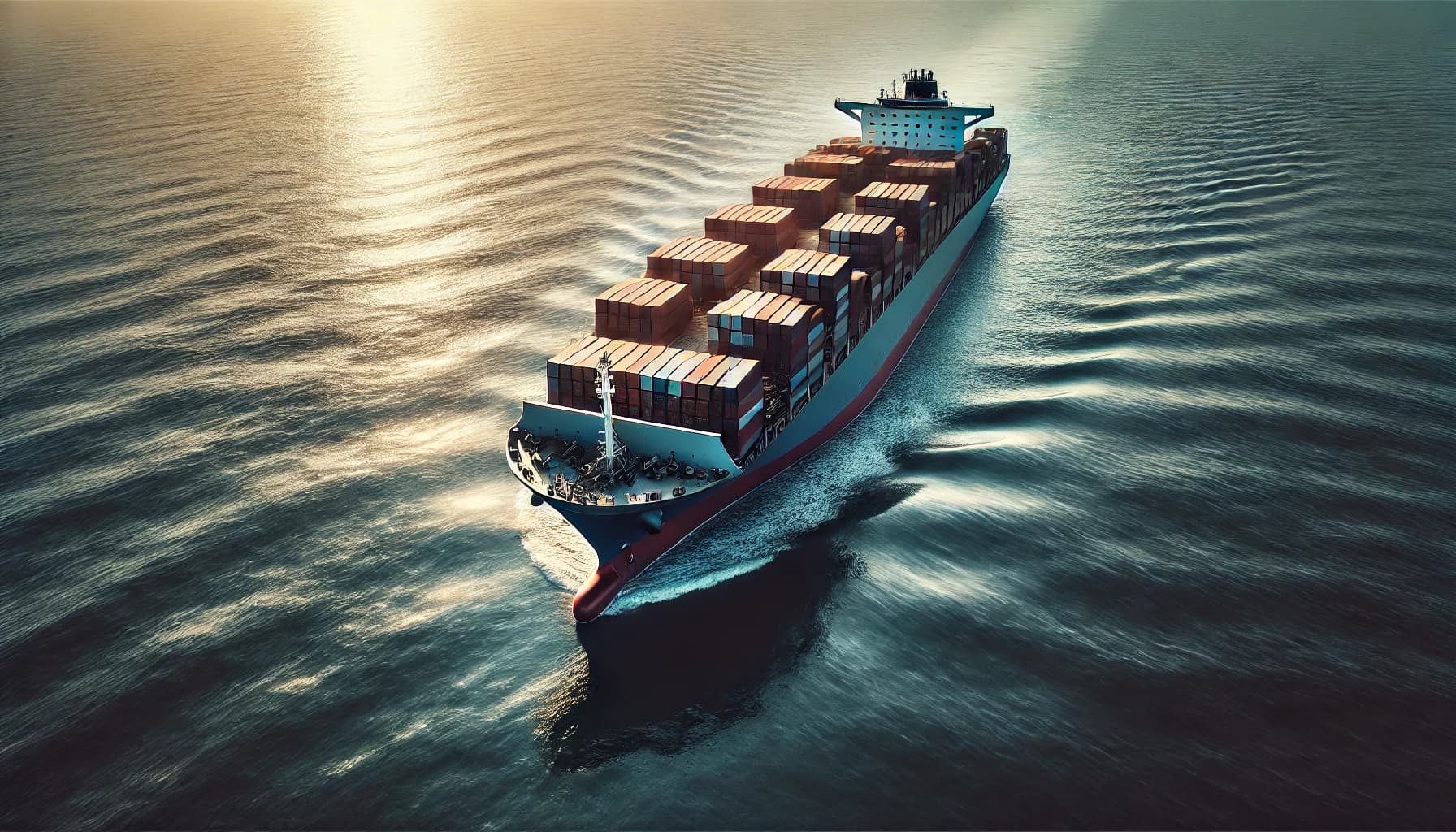
How can big data help shipowners and managers?
Using big data techniques enables companies to propose preventive measures that can overcome problems, literally changing the future.
And for the shipping industry to become leaner and more operationally efficient it needs to harness this power of predictive analysis.
Through pattern finding and subsequent strategic planning, all aspects of maritime operations can be enhanced. From enabling a more secure environment to ensuring prompt deliveries, and from the accurate tracking of cargo to allowing on-the-spot decision making regarding terminal allocations, big data can turn this, and more, into reality.
Big data and connectivity
Supply chains are complex and have many moving parts. And where big data, specifically an ICT system (Information Communication Technology), can help is to connect all of those different facets.
You'll be adding real value to your company by choosing to use an ICT system and harnessing the big data it produces by connecting your vessels with your personnel, both ashore and onboard, and with the ports you sail into.
It's all about better collaboration between your people, your departments, your offices and your vessels and enhancing the flow of your business.
Read more: Why Collaboration in Maritime Recruitment is Crucial

Real life examples of big data at work
As someone who is working in the maritime industry, you don't need us to tell you how the Covid pandemic impacted global supply chains. The knock on effect from the crew change crisis was felt across the world by manufacturers, logistics companies, retailers and consumers alike.
(And let's not forget the toll it took on seafarers who were either unable to disembark or unable to work.)
And if your shipping company found itself scrambling to cope with the rapidly shifting landscape, consider how big data could have been beneficial in planning alternative routes, estimating ETAs, and helping you, if not avoid the fall out, then at least plan for it so you were better prepared.
Here’s another example: let’s say one of your vessels is heading straight for the eye of a storm. Not only could this be potentially dangerous, it will also be highly likely that delivery times will be adversely affected.
This is where the shipowner or manager can employ big data to calculate the cost and viability of taking an alternative route.
Big data in the maritime industry and Martide
Big data offers some serious advantages when it comes to running a tighter ship. Quite literally. Therefore it seems likely that this is one marine tech advancement that does have a future role to play in the maritime industry.
Is it time you implemented or upgraded your ICT systems? It could be well worth investigating some options. And if it all feels a little overwhelming, remember that you don't have to jump in with both feet and become a totally digitalized organization overnight.

As we already mentioned at the top of this article, at Martide, we love technology, which is why we created our maritime crew management and recruitment software for shipowners, crew managers, recruitment officers and manning agents.
Our software platform is custom built for the maritime industry. It helps you advertise your job vacancies, source qualified seafarers, manage your recruitment pipelines, track your applicants, and plan your crew and crew change dates efficiently and effectively.
We've designed our recruitment and crewing system to be user-friendly, with a highly visual and intuitive interface, so even if you're not on close terms with the latest marine tech buzzwords or you’re not the most technically minded person, you should haveno trouble using Martide to streamline your operations.
Maritime crew management software for easy collaboration
Martide’s Software as a Service (SaaS) solution eliminates the headaches associated with crew management and maritime recruitment. Our platform connects manning agents, shipping companies and seafarers all in one user-friendly place.
Why spend time and money using multiple systems when you can do it all here?
Read more: What is a Crewing System & Why Does Your Maritime Recruitment Strategy Need One?
From job adverts that target qualified seafarers to an applicant tracking and crewing system to interview management - we have you covered.
We make maritime recruitment and crew management easier
Our aim is to make your workflow easier, and to make managing interactions between people simpler. After all, it shouldn’t be hard to talk - especially in these times of ultra connectivity!

We believe that processes should be easy, efficient and transparent. Particularly in the shipping industry where so many different parties are involved (and so much money is at stake!)
Built for the small to medium sized shipowner
Martide is a cloud-based crewing system built to empower and support the small and medium sized ship owner or manager through all stages of the marine recruitment process.
Our main focus is on building user friendly maritime software that people actually want to use, and we cover all crewing processes from candidate selection to mobilization and reporting - something that will come in handy next time you’re running a gap analysis!
We offer a web-based application that requires no up-front investment and no installation yet all the functionality and benefits you expect from a fully integrated crewing system.
Onboarding is easy - something our clients who are established vessel owners, ship-management companies, and manning agencies love!
If this sounds interesting and you’d like to find out more about how we can help your shipping company close the data gap, get more from the data that your company already owns, and open up a world of possibilities when it comes to streamlining your business, request your free demo today.
And don’t forget to tell your crew to download our seafarer job app for iOS or Android from the Apple App Store or from Google Play either!
This post was originally published on June 10th 2019 and last updated on March 20th 2025.

Eve Church
Eve is Martide's content writer, publishing regular posts on everything from our maritime recruitment and crew planning software to life at sea. Eve has been writing professionally for more than two decades, crafting everything from SEO-focused blog posts and website landing pages to magazine articles and corporate whitepapers.
UK


